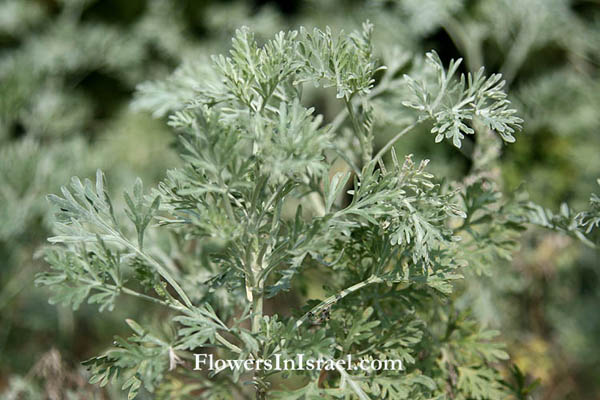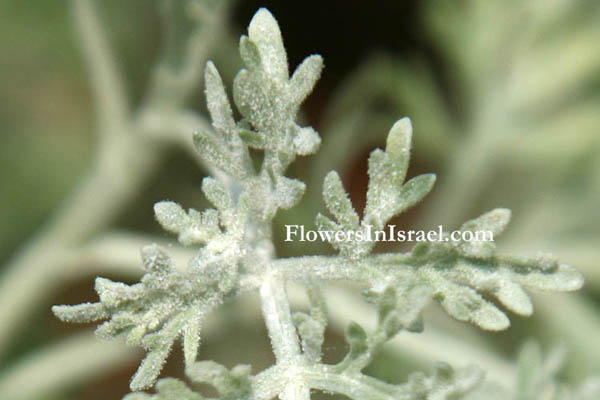Hebrew: שיבה ,לענה שיחנית, Arabic: أرتميزيا
| Scientific name: | Artemisia arborescens L. | |
| Common name: | Tree Wormwood | |
| Hebrew name: | שיבה ,לענה שיחנית | |
| Arabic name: | أرتميزيا | |
| Family: | Compositae / Asteraceae, מורכבים |

|
| Life form: | Chamaephyte | |
| Stems: | Spreading shrub to 100cm or more; woody at the base | |
| Leaves: | Alternate, dissected twice or more | |
| Flowers: | Yellow | |
| Fruits / pods: | Usually smooth, occasionally hairy | |
| Flowering Period: | April, May, June, July, August, September, October | |
| Habitat: | Mediterranean maquis and forest | |
| Distribution: | Mediterranean Woodlands and Shrublands | |
| Chorotype: | Mediterranean | |
| Summer shedding: | Perennating |

Derivation of the botanical name: Artemisia, Ἀρτεμισία, referring to the Greek goddess Artemis who so benefited from a plant of this family that she gave it her own name. Plants described by Dioscorides & Pliny like wormword or mugwort from which the genus name Artemisia is taken. An alternative possibility for the derivation of this name is that it comes from Queen Artemisia II of Caria, sister and wife of King Mausolus, who ruled after his death from 352 to 350 B.C.E. and built during her short reign one of the Seven Wonders of the Ancient World, the Mausoleum at Halicarnassus, which she unfortunately did not live to see the completion of. arborescens, arbor, "tree", escens, "becoming like", "incomplete resemblance -ish"; tree like. The Hebrew word: לענה, la`anah, from Arabic root meaning to curse.
The medical use of Artemisia dates back to ancient Egypt and is mentioned in the Ebers Papyrus (c.1550 BCE). Pythagoras(c.582-c.507 BCE), Greek philosopher and mathematician, thought that wormwood leaves in wine would ease childbirth, and Hippocrates (c.460-c.377 BCE), Greek physician, recommended it for period pains, as well as anemia and rheumatism. The essential oil in Artemisia was an ingredient in the alcoholic aperitif called absinthe, which was first created by Henri Pernod in 1797. By 1910, France's rate of absinthe consumption had topped some 36 million liters per year. Bible resources:
|